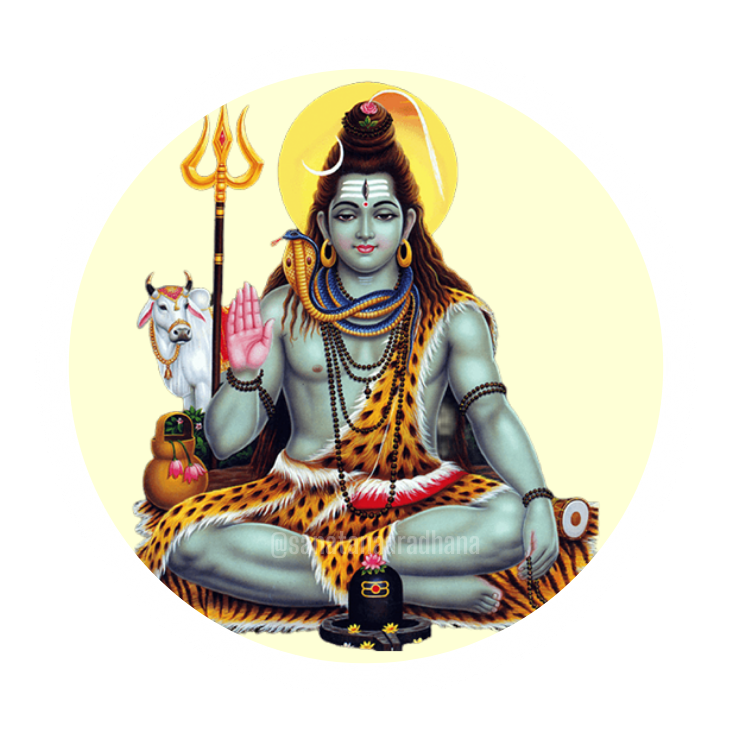- शिव The auspicious and benevolent one.
- महेश्वर The great Lord of the universe.
- शम्भू The source of happiness and well-being.
- पिनाकी The wielder of the bow Pinaka.
- शूलपाणी The one who holds the trident (Trishula).
- खटवांगी The one who carries a staff with a skull on top.
- विष्णुवल्लभ The one who is dear to Lord Vishnu.
- शिपिविष्ट The radiant one who resides in all beings.
- अंबिकानाथ The Lord of Goddess Parvati (Ambika).
- श्रीकण्ठ The one with a blue throat (from swallowing poison).
- भक्तवत्सल The one who is compassionate and affectionate to devotees.
- शंकर The benefactor who grants peace and prosperity.
- उग्र The fierce and powerful one.
- कपाली The one who wears a garland of skulls.
- कामारी The enemy of desire (Kama, the god of love).
- सुरसूदन The destroyer of demons.
- गंगाधर The one who holds the river Ganga in his hair.
- ललाटाक्ष The one with an eye on his forehead (the third eye).
- महाकाल The great time, the destroyer of everything.
- कृपानिधि The one who is the treasure house of compassion.
- भव The one who exists in all states and times.
- शर्व The destroyer of all negative forces.
- त्रिलोकेश The Lord of the three worlds (heaven, earth, and the underworld).
- शितिकण्ठ The one with a white or blue throat (due to holding poison).
- शिवाप्रिय The beloved of Goddess Parvati (Shiva’s consort).
- शशिशेखर The one who adorns the moon on his head.
- वामदेव The peaceful and benevolent form of Shiva.
- विरूपाक्ष The one with uneven eyes or the three-eyed one.
- कपर्दी The one with matted hair.
- नीललोहित The one who is blue and red in complexion.
- भीम The fearsome one, full of awe and power.
- परशुहस्त The one who holds an axe in his hand.
- मृगपाणी The one who holds a deer in his hand, symbolizing control over the mind.
- जटाधर The one with matted locks of hair.
- कैलाशवासी The one who resides in Kailash, the sacred mountain.
- कवची The one who is always protected with divine armor.
- कठोर The one who is firm, unyielding, and strong.
- त्रिपुरांतक The destroyer of the three cities (Tripura) of demons.
- वृषांक The one who has a bull as his emblem (Nandi).
- वृषभारूढ़ The one who rides on a bull.
- भस्मोद्धूलितविग्रह The one who is smeared with sacred ashes.
- सामप्रिय The one who is fond of the Sama Veda (one of the four Vedas).
- स्वरमयी The embodiment of sound and music.
- त्रयीमूर्ति The one who embodies the three forms (Brahma, Vishnu, and Shiva).
- अनीश्वर The one beyond all lords, the Supreme Being.
- सर्वज्ञ The all-knowing one.
- परमात्मा The supreme soul, the essence of the universe.
- रूद्र The fierce form of Shiva, representing destruction and transformation.
- भूतपति The Lord of all living beings (past, present, and future).
- स्थाणु The immovable one, representing steadiness and permanence.
- अहिर्बुध्न्य The one who resides deep within the ocean (symbolizing hidden power).
- दिगम्बर The one who is clothed with the directions (sky-clad).
- अष्टमूर्ति The one with eight forms, representing the elements of nature.
- अनेकात्मा The one with many forms and aspects.
- सात्त्विक The one who embodies purity and goodness.
- शुद्धविग्रह The one with a pure and sacred form.
- सोमसूर्याग्निलोचन The one with the sun, moon, and fire as his eyes.
- हवि The one who is invoked in sacrificial offerings.
- यज्ञमय The one who is the embodiment of sacrifice.
- सोम The one who is associated with the moon and Soma (the sacred drink).
- पंचवक्त्र The one with five faces, symbolizing his omnipresence.
- सदाशिव The ever-auspicious and eternal Lord.
- विश्वेश्वर The Lord of the universe.
- वीरभद्र The fierce warrior form of Shiva.
- गणनाथ The Lord of the Ganas (Shiva’s attendants).
- प्रजापति The Lord of all creatures.
- हिरण्यरेता The one with golden seed, symbolizing creation and fertility.
- दुर्धुर्ष The one who is invincible and unassailable.
- गिरीश The Lord of the mountains.
- गिरिश्वर The Lord of Mount Kailash.
- अनघ The one who is sinless and pure.
- भुजंगभूषण The one who wears serpents as ornaments.
- भर्ग The radiant one who removes sins and darkness.
- गिरिधन्वा The one who wields a bow made of the mountain.
- गिरिप्रिय The one who loves mountains.
- कृत्तिवासा The one who wears animal skins.
- पुराराति The enemy of the cities of demons (destroyer of evil).
- भगवान् The one who possesses all divine qualities.
- प्रमथाधिप The Lord of the Pramathas (divine beings and attendants of Shiva).
- मृत्युंजय The conqueror of death.
- सूक्ष्मतनु The one with a subtle body, representing the formless.
- जगद्व्यापी The one who pervades the entire universe.
- जगद्गुरू The teacher of the world, guiding all beings.
- व्योमकेश The one with the sky as his hair, representing his boundless form.
- महासेनजनक The father of Kartikeya (also known as Mahasena).
- चारुविक्रम The one who is valorous and noble.
- शाश्वत The eternal one, who exists beyond time.
- खण्डपरशु The one who holds a broken axe, symbolizing his fierce nature.
- हर The remover of all obstacles and sins.
- भगनेत्रभिद् The one who destroyed the eye of Bhaga, the god of wealth.
- अव्यक्त The unmanifest, beyond comprehension.
- सहस्राक्ष The one with a thousand eyes, symbolizing omnipresence.
- सहस्रपाद The one with a thousand feet, representing his presence everywhere.
- अपवर्गप्रद The one who grants liberation (moksha).
- अनंत The infinite one, without beginning or end.
- तारक The liberator, the one who grants salvation.
- परमेश्वर The supreme Lord, the highest deity.
- पूषदन्तभित् The one who broke the teeth of Pushadanta, a divine being.
- अव्यग्र The one who is steady and unwavering.
- दक्षाध्वरहर The destroyer of Daksha’s sacrifice.
- अज The unborn one, existing beyond birth and death.
- पाशविमोचन The one who frees from bondage (symbolized by the noose or Pasha).
- मृड The one who is kind and compassionate.
- पशुपति The Lord of all living beings, especially animals.
- देव The divine one, worshipped by all.
- महादेव The great god, revered as the supreme deity.
- अव्यय The imperishable one, who never decays or diminishes.
- हरि The remover of sorrows and sins.
You cannot copy content of this page


